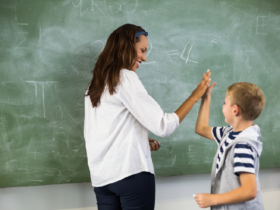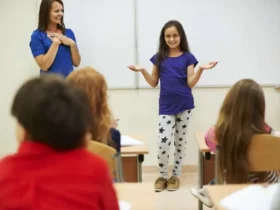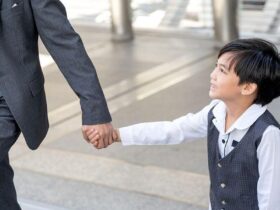How Preschool Gym Activities Boost Early Brain Development

A child’s brain develops at remarkable speed in the earliest years of life, forming trillions of connections that shape thinking, behaviour, and learning capacity. Parents often place heavy emphasis on books and early academics, yet movement is equally vital in supporting these neural foundations. Gym classes for kids are more than just opportunities for children to expend energy; they are experiences that actively build the brain. Each stretch, jump, and balance challenge stimulates pathways that nurture focus, language, memory, and emotional stability.
Movement and Neural Connectivity
Children instinctively move, but the targeted activities found in a preschool gym go beyond unstructured play. Balancing beams, climbing frames, and jumping sequences challenge coordination and require communication between multiple brain regions. These experiences strengthen the connection between the cerebellum, which manages balance and motor control, and the prefrontal cortex, which governs planning and decision-making. This repeated cross-communication builds flexible thinking and the capacity to solve problems in creative ways over time. Put simply, physical activity helps wire the brain for adaptability.
Enhancing Attention and Focus
Maintaining attention is not innate; it must be practised. Gym classes for kids often include obstacle courses or rhythm-based routines that require children to stay engaged and follow multi-step directions. Stop-and-go games, where children shift quickly from action to pause, reinforce impulse control. Such tasks demand concentration and strengthen neural circuits related to focus. This instance translates into better listening skills, an ability to resist distraction, and greater persistence in completing tasks in classrooms.
Supporting Language and Memory Skills
Language and memory are also enhanced when movement is paired with instruction. Children in a preschool gym listen to directions such as “hop twice then crawl under the bar,” linking words with actions. This association expands vocabulary while sharpening comprehension. Memory is exercised when children recall sequences or repeat a pattern of steps. Neural circuits responsible for storage and recall become more efficient by repeatedly practising these routines. These same circuits later support academic learning, from remembering letters and numbers to following classroom instructions.
Emotional Regulation and Stress Reduction
Beyond intellectual skills, gym activities provide essential outlets for emotional regulation. Young children often experience strong emotions without the tools to manage them. Physical activity helps lower stress hormones like cortisol, creating a calmer state of mind. Group-based gym activities encourage patience and cooperation, teaching children how to wait for their turn, share equipment, and cope with disappointment when they do not win. These small but meaningful lessons strengthen the prefrontal cortex, which plays a critical role in self-control and resilience.
Social Learning and Executive Function
A preschool gym is also a training ground for social intelligence. Cooperative games require teamwork, communication, and negotiation. Once a group of children work together to complete a task, they are learning empathy and perspective-taking. These skills are closely tied to executive function: the brain’s ability to plan, organise, and regulate behaviour. Executive function is one of the strongest predictors of school readiness, showing how gym activities can set the stage for long-term academic success.
Building a Habit of Active Learning
Perhaps the most lasting effect of gym classes for kids is the cultivation of a growth-oriented mindset. Physical challenges encourage children to try, fail, and try again until they succeed. This process nurtures perseverance and frames effort as valuable rather than discouraging. Children who engage in preschool gym activities regularly are more likely to carry this sense of persistence into other areas, including reading, problem-solving, and social interaction. The gym, therefore, becomes a place where active bodies and active minds grow together.
Conclusion
Brain development is not confined to classrooms or books; it is equally shaped by movement, play, and physical challenge. Structured preschool gym sessions activate the neural pathways that govern focus, memory, emotional balance, and social intelligence. These experiences prepare children for academic success while also instilling habits of curiosity and resilience that will serve them for life. Recognising the brain-building potential of physical activity means valuing gym time not as a break from learning, but as an essential part of it.
Contact BearyFun Gym and discover how every movement in the preschool gym builds the foundation for a child’s future success.








Leave a Reply